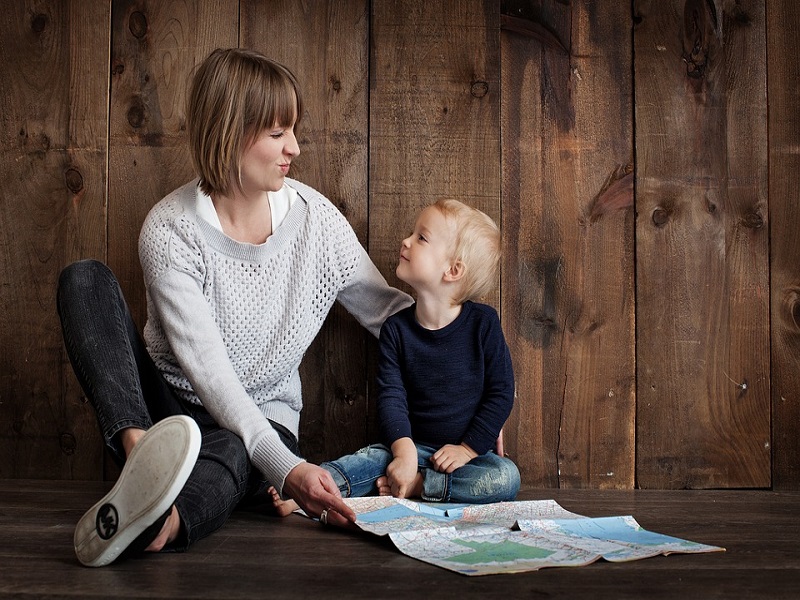via LIFECHO: We try to answer the question What is the Role of a Parent? by taking into analysis the biological, psychological, social and financial dimensions. The parents’ roles are of the maximum importance for personality development of the children. Basic traditional roles of being a parent are: nurture and educate children, discipline them, manage home and financially support family. Modern roles brought an active participation of fathers in children care. The main idea is that parents must be child centered and should aim to optimal growth and development of their children, to help them have satisfactory biological, social, psychological and emotional growth.
Take Care of the Biological Needs of Children
The first role of the parents is to take care of their child’s biological needs. Providing physical care to fulfill the needs of the child imply: proper food, fresh air, good lighting, enough sleep, recreation time, etc.
Provide an Optimal Environment
You have to provide a safe, nurturing and supportive environment that allows the children to grow healthy. For an optimal development, children need: adequate physical home environment; a tolerant and positive atmosphere; conditions for positive changes and improvements; opportunities to explore and experiment in his environment; consistent routine; etc.
Protect Your Children
Make sure their environment is safe. You have to protect your children, to warn them by telling what is safe to do and what isn’t, before they venture out on their own. Teach your child the difference between right and wrong, and that wrong may be harmful both for him and for others. Your goal is to protect your children from dangers to which they may be vulnerable and to keep them safe. Also children feel safe when there is continuity and consistency in daily routines, and especially when there is a loving atmosphere.
Teach and Educate Your Child
To raise your children properly, your duties aren’t limited to food, shelter and protection, but also require you to teach and educate them, to shape knowledge and character, to prepare your child to face the real world. So another parent’s role is to make possible learning of such actions as walking and talking, reading and writing (to facilitate learning of these activities, a parent must have patience and understanding). The main goal here is to provide the children with the best possible education. A parent has to be a fine observer (to have an overview of their children’s behaviors, moods and activities) and instructor for his children. If you want to be successful in this process of education, you have to be a model for your child. Especially be a gender model for the child and show him or her how to be a man or a woman. Teach your children about what is at the core of masculinity or femininity (see gender roles in the family).
Give your child various opportunities to finally become a healthy member of the community. To successfully integrate your child into your community, you should give him the knowledge of your community culture so that he will have the needed information and skills to grow up into a adapted adult. It is very important to guide your children toward social adaptation and integration. To help your kids develop appropriate coping skills and help them gain independence, explain and carry out tasks with your child. You also must be an advisor and a checker for homework. Take the time to explain. What is the role of a parent question doesn’t imply that there is just a single and essential role. There are many roles of being a parent and some of them are essential, while others are secondary.
Provide Guidance, Direction, Assistance and Help
Sit back and listen to your child, abstain from imposing your point of view and just offer appropriate direction and guidance. Another important role of parent is to provide guidance and assistance in the process of personal development and growth. The most effective way to help children is to advise them instead of commanding and to guide the progress of child development without doing his work (help them cope, but don’t solve yourself their problems). Give them a sense of direction and provide sufficient support to succeed and to feel that they are the source of the achievement.
Step back and facilitate children find out independence, allow and encourage them to be independent, help them handle and balance their needs for independence and dependence. Understand their need to be independent without loosing all your authority. When children show a certain level of responsibility and independence extend their privileges and freedoms, but hold them back when their behavior go wrong. At an early stage you make decisions for your children, but at teenage just assist them to decide (provide the wisdom to make themselves the final decision). Assist your child in the achievement of a task; help him only when necessary and only as far as needed. Familiarize your children with the diversity, pros and cons, and benefits of the most relevant ways to make a living, but let them to choose their own career. Ask various questions to get the child to discover exactly what it is he wants to do or be.
Support and Motivate the Child
If you want the child to be successful and to achieve his goals, encourage and motivate him. Positive motivation and encouragement is a must, love your kids both when they succeed and when they fail. Provide empathic encouragement as a reward for an achievement, but also to minimize the frustrations of failure. Teach the child to look at failure as a situation of learning and not as a tragic situation. Listen and be supportive, encourage instead of crushing child’s capacity to say no, at all costs. Motivate and persuade children to achieve more than they thought possible. Motivate the child and even gently push him to strive ever harder, if you want him to gain a strong will.
Don’t think that your children are sufficient to themselves and that they will grow up into strong young adults by themselves! Children should be personally motivated and trained to achieve their tasks. In short, you must be the personal coach of your kids: hearten the positive, temperate the negative, be active and influence your kid development. Praise your child, not only his behavior!
Take Care of the Social Emotional Skills
Another duty of you as a parent is to help your child to acquire emotional wellbeing. There are positive factors, such as: praise, encouragement, calm talk and response, affectionate attention, etc. that will help to build healthy emotions. Strive to eliminate negative factors such as will annihilation, sarcasm, neglect or bullying. Each child is unique, don’t compare your child with others (especially when you observe a weakness), rather help him deal with being different and even encourage him to be unique. Assist children in learning how to express their feelings and desires and help them develop healthy relationships. Socialize your child.
Monitor the emotional development of children and keep away main traumatic events that can negatively affect their emotional dimension. Assist child develop a positive self-perception, a strong sense safety and make sure they feel loved, if you want to raise an emotionally healthy young adult. Be calm and emotionally supportive. Teach child how to control and change their thoughts, emotions and behaviors.
Discipline Gently
Understand what the child is communicating directly or indirectly by his attitudes and behaviors. A major aspect of the parent’s role is to establish and maintain order in family by requesting a certain level of discipline. Always have a calm reaction, respond consistently, appropriately, and sensitively and gently give a corrective feedback to your child when his behavior is inappropriate. A calm and emphatic talk helps children become conscious of their mistakes. An upset reaction increases the tendency of child to defend him. You have to do what is best for your children, rather than overlook their ways of behaving in order to meet your need for silence. Practice a gentle but firm style of discipline.
Set boundaries and limits to control the children, impose ground rules and standards if you want to cultivate a good will. Build your authority, take charge and when limits are transgressed, issue ultimatums, enforce discipline and impose consequences. Don’t provide approval, praise or rewards when child’s behavior is inappropriate. Also parents’ duty is to warn their children to set aside games and TV until homework is finished. If you want to master the art of gentle discipline you have to acquire effective parenting techniques.
Finally, as a parent you have to be strong and do your best for your children even at your own cost (put your children position first). Be a giver rather than a receiver, give and go on giving, but at the same time demand (role of the child may be that of succeeding in school and of respecting the ground rules of family). You also have to continually learn, improve and optimize your parenting knowledge and skills. We tried to answer to What is the role of a parent? inquiry by describing the most important roles of being a parent and hope you will benefit our tips.







